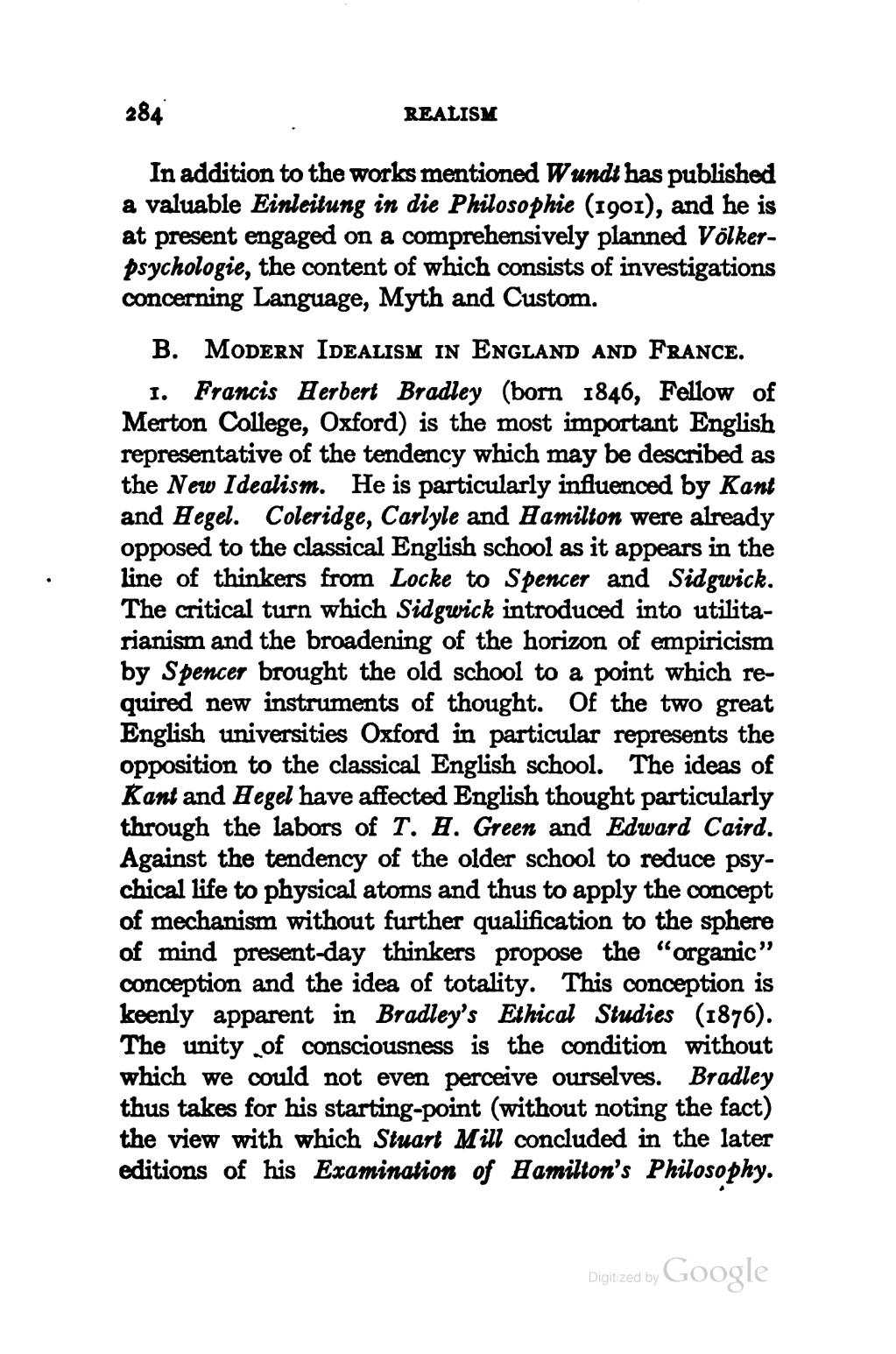In addition to the works mentioned Wundt has published a valuable Enleitung in die Philosophie (1901), and he is at present engaged on a comprehensively planned Völkerpsychologie, the content of which consists of investigations concerning Language, Myth and Custom.
B. Modern Idealism in England and France.
1. Francis Herbert Bradley (born 1846[1], Fellow of Merton College, Oxford) is the most important English representative of the tendency which may be described as the New Idealism. He is particularly influenced by Kant and Hegel. Coleridge, Carlyle and Hamilton were already opposed to the classical English school as it appears in the line of thinkers from Locke to Spencer and Sidgwick. The critical turn which Sidgwick introduced into utilitarianism and the broadening of the horizon of empiricism by Spencer brought the old school to a point which required new instruments of thought. Of the two great English universities Oxford in particular represents the opposition to the classical English school. The ideas of Kant and Hegel have affected English thought particularly through the labors of T. H. Green and Edward Caird. Against the tendency of the older school to reduce psychical life to physical atoms and thus to apply the concept of mechanism without further qualification to the sphere of mind present-day thinkers propose the "organic" conception and the idea of totality. This conception is keenly apparent in Bradley's Ethical Studies (1876). The unity of consciousness is the condition without which we could not even perceive ourselves. Bradley thus takes for his starting-point (without noting the fact) the view with which Stuart Mill concluded in the later editions of his Examination of Hamilton's Philosophy.
- ↑ Died 1924
